After a number of shorts and indie films, director Rupert Wyatt was hired to direct 2011’s Rise of the Planet of the Apes, a movie that would reboot the popular sci-fi franchise from the ‘70s. Other than a remake of The Gambler with Mark Wahlberg and Brie Larson and a television show based on The Exorcist, Wyatt has been relatively quiet.
Wyatt returns to the realm of sci-fi with his new film Captive State, co-written with his wife Erica Beeney, which looks at America nine years after an alien invasion where the government is working the aliens to quell the persistent human rebellion.
John Goodman plays seasoned Chicago police detective William Mulligan, who has been hearing rumblings of a subversive underground rebellion led by someone named “The Phoenix.” At the same time, a young man named Gabriel (Ashton Sanders from Moonlight) has been trying to find clues to the disappearance of his older brother Rafe, and the individual that might tie them together is a prostitute played by Vera Farmiga.
Captive State is definitely more like classic science fiction in novel form where you’re given a lot of information in the opening credits, but it doesn’t try to hit you over the head with some of the film’s very clear messages.
THE BEAT spoke with Wyatt over the phone this past weekend for the following interview…
THE BEAT: “Captive State” was something you wrote with your wife, so was that something you two have been formulating for a while, or something fairly recent that you just got made very fast?
RUPERT WYATT: Funnily enough, a little bit of both. I mean it’s long been an interest and ambition of mine to tell a story of an occupation.Battle of Algiers, Melville’s Army of Shadows are two really formative films for me, and I always loved the idea of… a lot of the films I’ve made deal with this idea of people raging against the machine or animals raging against the machine, whatever you want to say about it. I’ve long been interested in this idea of an uprising and how to tell that story from both sides, both the collaborative and the dissident. That said, when it came to writing it, we wrote it really quickly, and that was partly because I was in a long-standing contract with Fox from making the “Planet of the Apes” film, so everything I wrote I had to give to them. But the moment that stopped, I wrote this.
THE BEAT: I figured you had a contract Fox but didn’t realize they got anything you wrote under that contract.
WYATT: Yeah, it’s a first look sort of contract, and in fairness to them, I don’t mean that as criticism, it’s more to do with the fact I wanted to make this film in a very particular way with a particular budget and very location-dependent and with a certain tone. And also explore it as an ensemble. As I’m sure you felt when you watched the film you probably saw it, we’re dealing with many characters, which is a tough way to approach the storytelling. It’s complex, and I was really fascinated of how to give that a shot behind the narrative. I was interested in that.
THE BEAT: The movie is definitely in the vein of more challenging science fiction films like “Arrival” vs. high concept alien invasion movies like “Battle Los Angeles.” Did you feel this would be harder to get made through a big studio or did you always envision it as a lower budget sci-fi film?
WYATT: I’ve long been interested in “dirty sci-fi,” if that’s a phrase one can use, like the Philip K. Dick’s kind of ground’s eye view of things rather than the god’s eye view of a lot of modern-day mainstream cinema where the camera is at a very macro sort of level. I wanted to tell this story from the perspective of those on the ground. Like you and I looking out of the window today, I wanted to tell the story of what we see through that window rather than tell the story of the invasion from a global perspective, how we beat the aliens, what the aliens vulnerabilities are. Following that more tried and tested genre approach to this story. I wanted it to be much more about the human choices. That’s not necessarily a mainstream approach — it’s much more character driven – but as you’ve probably seen from the work I’ve done, I’ve long been an immense fan of genre but looking to subvert genre, and I felt like this was the best way to tell that story.
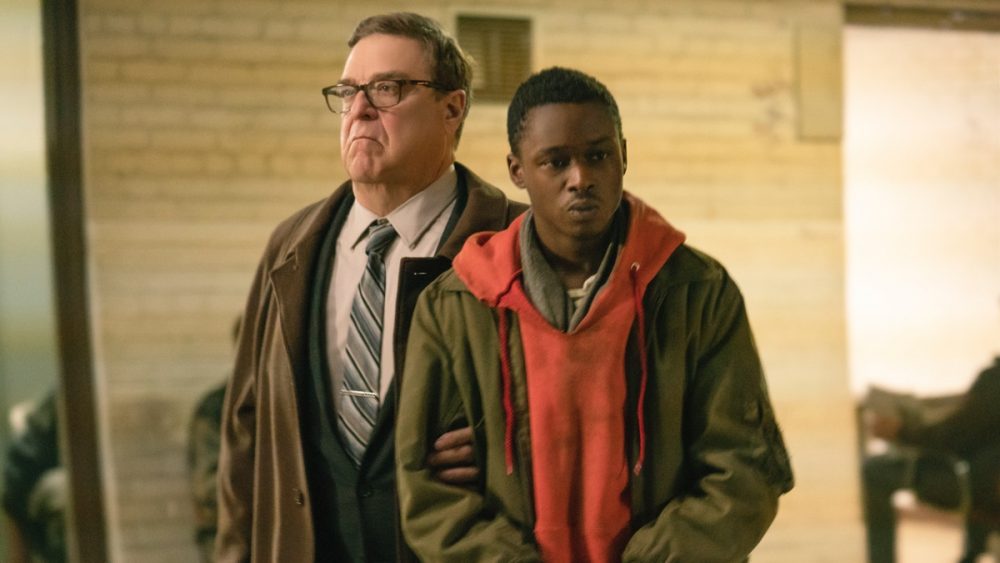
THE BEAT: Even back to “The Escapist,” I remember you saying you wanted to subvert genre, and that wasn’t anything like the other prison movies I’ve seen. After directing “Planet of the Apes,” which was also science fiction, was there a reason why you wanted to do more in that realm? Had you been seeking out other sci-fi films over the years?
WYATT: I don’t know what I’ll do next, because who does? Maybe some people do. But it’s the hopes and dreams of mine to get the story told, of course. I would love to explore something historical, a story that I really want to tell. There’s a science fiction film that I’m writing that I really want to do, as well. It’s interesting, because you may have a strong and good opinion about this, but I’ve always felt that the thing that is sometimes lost by filmmakers, critics, studios, is this idea, especially in our day and age with franchise and IPs, is this great fascination with world creation. And that’s a wonderful thing. It’s a huge opportunity and a great, fascinating creative opportunity for a filmmaker to get into the notion of world creation and creating rules, creating mythology, building visual scenario.
At the end of the day, if you look at it, all of the films of real ambition and of scale that have worked are because they work on a human level. They work on a character level. And I think that’s often forgotten by people. That includes filmmakers who set out to do something of great ambition, and they just focus on the world creation and they forget, actually, the human story at its heart. So that’s what I was looking to do with Captive State is just stay true to that side of things.
THE BEAT: You set the movie very specifically in Chicago, including many of the city’s landmarks. Can you talk about choosing Chicago and what was involved with modifying it to make it look like it might nine years after an alien invasion?
WYATT: Well, we did very little. By shooting into pre-existing locations, that was always my intent with not to try and world create on an art direction level too much. Originally, when I first started working on the script, I was thinking of Boston, partly because it was, in a way, the birthplace of American revolution. At the same time, I had just done The Exorcist in Chicago, and I fell in love with the city. I just think it’s such a great American city, for me, if you discount New York which is more of an international city perhaps. It just personified so much about what this country, both architecturally, culturally, the diversity, their complexity, culturally. All of these things were thrown into this really interesting city with a great deal of history. I just thought if I’m going to create a finite footprint for this movie, which we did. We weren’t looking to go beyond a particular neighborhood. It just seemed to work so perfectly to be able to tell a story with real range and ambition.
THE BEAT: The film’s casting is really interesting. As you said, it’s an ensemble, but you also cast John Goodman in a lead role, which isn’t something we’ve seen from him much in recent years. You also have James Ransone is just amazing, underrated actor, and Kevin Dunn, who I didn’t even realize was the guy from “Veep” and “Transformers” seeing him in that context. How did you go about casting knowing that you had so many different characters?
WYATT: Well, I was fortunate, obviously, to have a great casting director, Sheila Jaffe, who has a great intuition for finding really, really strong character actors for parts. That said, it helps massively that this was an ensemble film. Everybody, in a way, had their own story to tell. I was fortunate enough to be able to approach actors of their stature, Kevin O’Connor, as you said, James Ransone, Ben Daniels, who I had worked with on The Exorcist. They don’t fill a huge amount of screen time. Vera Farmiga was a challenge in some ways because I wanted so much more from her, but at the same time, her character, in some ways, required an air of mystery about her. But I could have made a whole movie about her, frankly.
Always, to me, the starting point of any, one would hope, successful endeavor, storytelling-wise, is to find the actors who personify the character and vice versa. To me, it’s the great character actors that you want to make the stars of the film. Having John Goodman, who is a perennial character actor but also, in an interesting way, quite the movie star. Everybody knows who John Goodman is, so he has that star power, but he is very understated and very grounded. Each role he plays, he plays from a different angle, so to have him number one on the call sheet and then build around him is a great luxury.
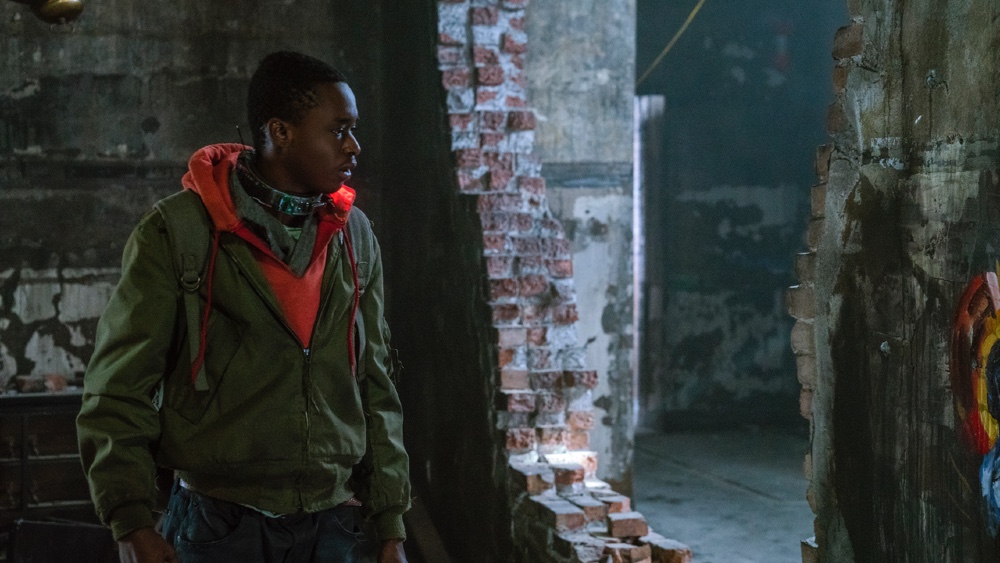
THE BEAT: There’s also Ashton Sanders who was in “Moonlight” and in “The Equalizer 2,” but he’s very fresh and new as an actor, which I think made him work as a character.
WYATT: Yeah, I wouldn’t say he’s massively experienced actor, because he’s fresh out of the gate in many ways. He’s building up a really interesting body of work, and I think he chooses films in a very interesting and considered way. What appealed to me with him is he’s an old soul. He’s very still, and I wanted at the center of this film being, as Gabriel is in many ways, the character that we look to relate to the most, at least initially. He’s somebody that has an ability to just sort of exist in the frame and do very little. But there’s an immediate empathy with him, and that really comes from having an old soul. He walked into the audition and I saw that immediately. At the time, I actually hadn’t seen Moonlight when I first met him, so it was only then that I went away and watched more of his work and realized there’s a profound innocence, but at the same time, sort of lived aspect to his character which I really liked.
THE BEAT: Let’s talk about the aliens, since as you say, this isn’t an alien invasion movie, but we do see one of them very early on, and it has a very different look. Many times, aliens have some sort of humanoid factor or on the other end, they might look like something out of “Starship Troopers.” Can you talk about how you worked on designing them and deciding how much of them to show?
WYATT: Yeah, sure. Well, it’s interesting, because — without giving too much away for those who haven’t seen the film — we made the choice, actually, pretty late. Obviously, the value of visual effects where you can do these things. Where we made a choice. Initially I thought well, we’ll follow the Jaws model, and we won’t see the shark for some time, and then it became clear, bearing in mind the narrative we were telling, the story we were telling, it was actually useful for the audience to see the face of the monster. To understand what we’re up against. That wasn’t because I felt the audience was going to have that expectation. It just felt like they needed to understand the nature of the threat so that we could then not see them for some time and still follow what was going on. So that’s how the reveal of the occupy came in, being in the prologue.
As for their design, it was that classic kind of… over time, both in development and then pre-production and then gradually in production, we went through many, many different iterations of how they were to be, who they were, where they came from. If they were carbon based as a species.
I loved this idea that we were like the honey bees protecting the hive, and we’re prepared to sacrifice ourselves for the greater good. They’re the wasps who are raiding the hive. And there began this idea that they had this insectoid like kind of origin, and therefore, lived below ground. They did not breathe our atmosphere. The vehicles that they traveled in had this sort of honey comb nest-like sort of structure, the terraforming of it. And that they’re colonizing. You know, they’re voracious. They just invade, occupy, strip mine, move on. And that’s a very wasp-like kind of trait.
So that’s where their design came from. And then in term of their armature and how they protect themselves, I had long been a fan of this sculptor Antony Gormley, and he designed a series of these really interesting humanoid-like sculptures made out of spikes. And I thought wouldn’t that be really interesting to follow that lead. Maybe they’d change their outer shell according to their emotion, so if they’re aggressive, they become very porcupine.
And so, it was a balance of many different influences, but it was all coming from the insect kingdom.
THE BEAT: You said earlier that you didn’t know what you were doing next, but there’s something called “Storm Kings” on your IMDB page. Is that another original idea you’re developing?
WYATT: Yeah, Storm King is something I’m doing with Studio 8’s Jeff Robinov, and we’re writing it at the moment. It possibly will happen sooner rather than later. It’s just one never knows, I guess, until cast is in place and Jeff, in that case, chooses to give it the greenlight. That’s a possibility, for sure, and then, I’m writing something that’s more historically-based. It’s a really, really interesting film that I guess you could call it, on one level it deals with the origins of football, but from a really interesting angle. Hard to really say more than that without going into great detail, so I won’t, but it’s something I actually will be shooting in the Hudson River Valley, which is where I live in upstate New York. So those are the two that I’m focusing on.
THE BEAT: That would be nice to have a movie where you could go home and go to sleep in your own bed every night, which doesn’t happen very often.
WYATT: Exactly. I’m sure you understand what I’m saying. (chuckles)
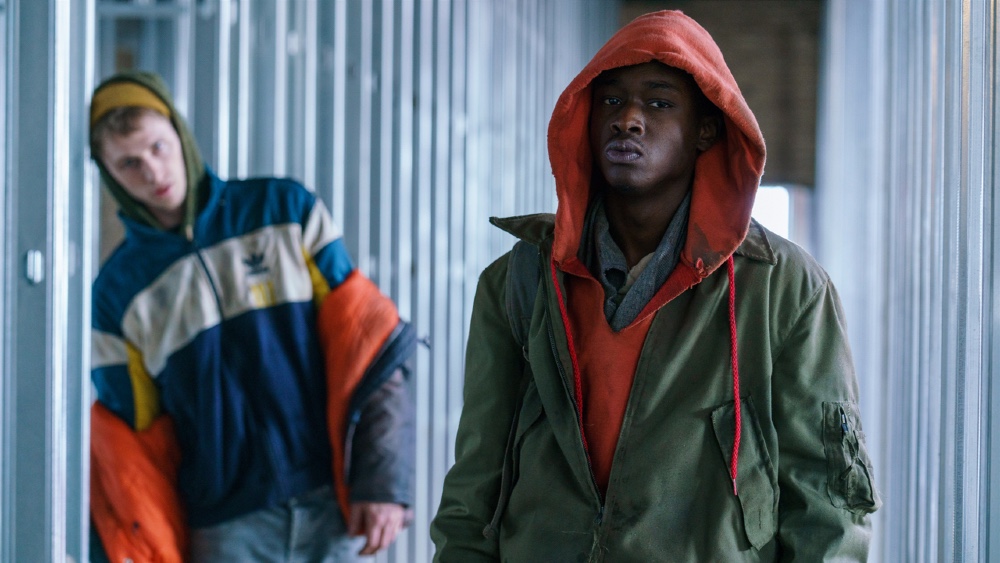
THE BEAT: I was pretty excited when I heard you were involved with the “Gambit” movie from when you were with Fox. You’re one of a few directors who was attached who then dropped out, so did you spend a lot of time developing that? Or was your name something that was thrown out there but it never came together?
WYATT: I spent a little bit of time. I was very close with Channing Tatum and his producing partner, and I worked on the script with them and Josh Zetumer as a writer. We were close. We were I believe 10 weeks away. It simply came down to budget. There was not enough. I mean, you know all too well that the politics of the business. Fantastic Four had been released by Fox a month before and had not gone well for them, and so our budget was slashed quite considerably. And the inevitable, from my perspective, was well then we need to rewrite the script to tailor to our budget. We were too close to the start date for Fox to really want to go there, so unfortunately, it just didn’t work out. All I know is Channing had a really, really wonderful idea for what that film could and should be, and I know he and Reid [Carolin] are still plugging away at it, so I hope in the new Disney era, that then they get to make it.
THE BEAT: You’ve done these studio movies, but you’ve also made a name for yourself doing these independent movies that look great with lower budgets. Where’s your headspace in terms of doing bigger budget movies or smaller movies that you’re developing yourself. I guess every director wants a bigger budget?
WYATT: I love both. Listen, there’s nothing better than being able to work on a scale with a real budget with crew and cast that are the best in the world. It’s extraordinary, but with it comes a set of rules. There’s a political aspect to it. There’s a lot of navigating to get … You know, you lose certain battles, but you do so in order to win the war, and it’s a much longer process. Development is a long process, and sometimes, unfortunately, projects come and go, but I will always seek out the opportunity to make really interesting, ambitious studio movies that want to work with me. But I’m an architect in many ways. I love building from the ground up. From the day I started making short films and things like that, I’ve always tried to create my own stuff and follow through on my own ideas. And that’s just a different approach to things. It’s hard in different ways, you know. It’s much more challenging in terms of making things work logistically and being able to achieve what’s in your head with certain constraints. But with it comes a great deal of creative freedom, and I think one gets better as a filmmaker when, like making Captive State, whatever the ultimate success of the film is, I feel a much better filmmaker for having made it.
Captive State opens nationwide on Friday, March 15.



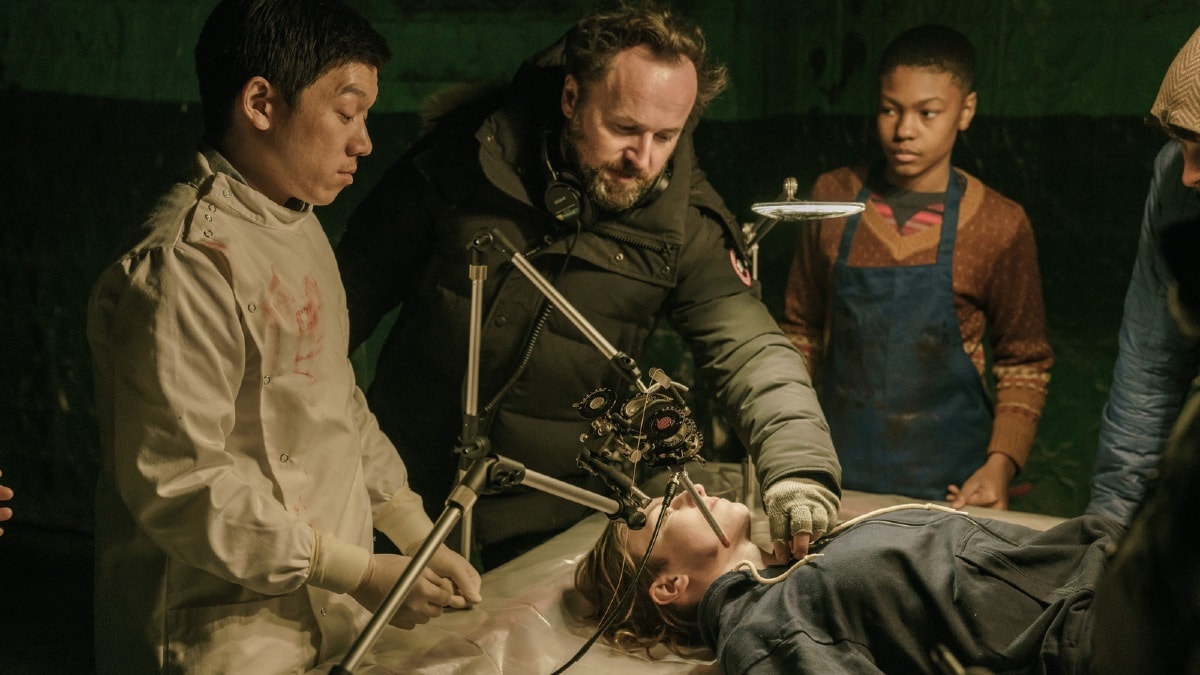


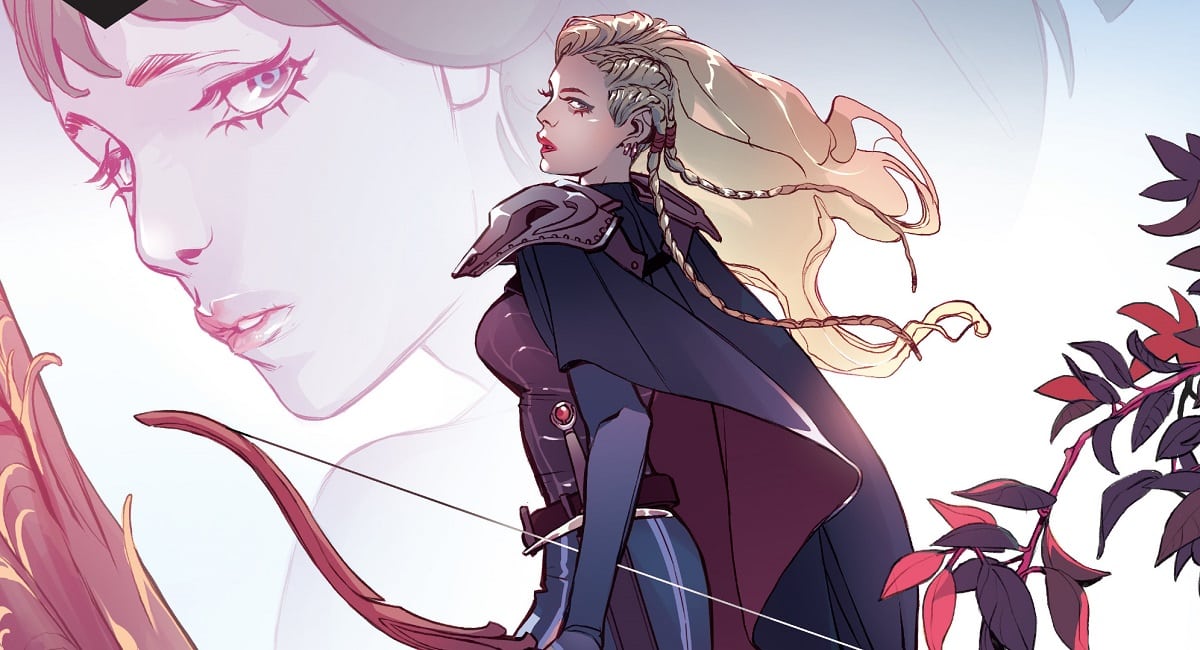




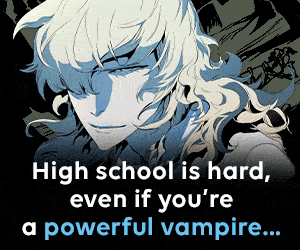

Comments are closed.